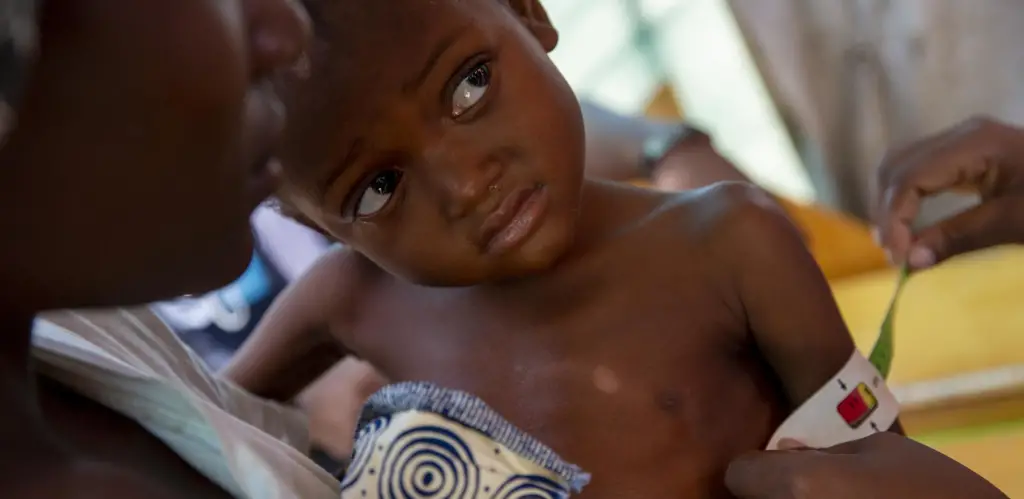- UNICEF said that the situation in the Eastern and southern regions is dire and any minimal cut in their humanitarian operations in the region could further irk the already long-running crisis.
- The United Nations agency said in a statement in Nairobi, Kenya that at least 1.5 million children were lacking life-saving treatment for severe wasting in Southern and Eastern Africa.
- In medium and low-income countries, learning losses due to school closures caused by COVID-19 have left up to 70 per cent of 10-year-olds unable to read or understand a simple text, up from 53 per cent in 2019.
The United Nations Children’s Fund (UNICEF) has appealed for US$255 million to revamp its emergency response in Eastern and Southern Africa in 2022.
UNICEF said that they will also direct the funds towards the treatment of severe wasting and supporting children with adequate and better-quality nutrition services.
The United Nations agency said in a statement in Nairobi, Kenya that at least 1.5 million children were lacking life-saving treatment for severe wasting in Southern and Eastern Africa. UNICEF also said the number of children in urgent need of help was roughly 3.6 million in the region, who are not reached on time to save their lives or protect them from permanent development damage.
Read: Airtel Africa and UNICEF in a US$57mn partnership to scale-up digital learning
Mohamed M. Malick Fall, UNICEF’s regional director for Eastern and Southern Africa, outcried that it was extremely devastating to see children suffering from severe wasting, something that could be prevented.
However, Mohamed said there was an improvement in wasting treatment outreach in the region. In addition, the pressure exerted by the Coronavirus pandemic, severe climate conditions like drought and floods, and the numerous conflicts in Africa, continue to worsen the conditions for children in Africa.
According to SOS Children’s Villages, 3.2 million children under the age of five die every year because of hunger and drought in Africa. In other words, more than half the children who die of hunger-related causes come from the continent.
In the same breath, he said that there has also been inconsistency in the flow of funds to UNICEF to support humanitarian response.
UNICEF said more than 255,000 children received treatment for severe wasting in Somalia last year. On Tuesday, January 2022, the International Organization for Migration (IOM) said the widespread drought in the Horn of Africa has severely affected the country the most, forcing the government to declare a state of emergency in November.
The UN agency and partners also reached 500,000 wasted children in Ethiopia and 310,000 in South Sudan.
Read: Sweden boosts UNICEF healthcare services in Uganda
Crises promoting severe wasting in Africa
UNICEF noted that the region and Africa at large were experiencing a handful of multiple crises:
- The level of food insecurity has increased exponentially. As of 2019, World Vision reported that more than 250 million people were experiencing hunger. In East Africa alone, over seven million people were at risk of starvation. A further 33.8 million were facing acute food insecurity. Millions are having to reduce the quantity and quality of what they eat to survive.
- Conflicts have become a way of life in many African nations. Military coups, jihadist insurgency and pre-and post-election wrangles have made economic activities such as agriculture difficult to maneuver in the regions experiencing these conflicts.
- Economic deterioration has been a worsening condition in most African countries. Most countries in the continent are ranked among the poorest in the world, which are surviving on debts from international organizations and private entities.
- Disease outbreaks have also hit hard the level of health in the continent. The Coronavirus pandemic, cholera, malaria, dysentery, and hemorrhagic fevers have affected the sustainability in Africa.
- Unprecedented cycles in drought and floods have left a bigger part of Africa on its knees, killing and displacing a lot of people in the continent.
“With unhindered access and predictable funding to reach children in need, the UNICEF and partners can save the lives of nearly every child admitted for severe wasting in the region,” the regional director said.
Prevention remains the most reliable way to ensure that the children survive, avoid permanent physical and cognitive damage, and protect the children from malnutrition-related long-life complications.
UNICEF has also warned that the scale of education lost during the Coronavirus pandemic era might be too great to overcome. Children have lost basic literacy and numeracy skills.
In medium and low-income countries, learning losses due to school closures caused by COVID-19 have left up to 70 per cent of 10-year-olds unable to read or understand a simple text, up from 53 per cent in 2019.
Read: European Investment Bank and UNICEF partnership
